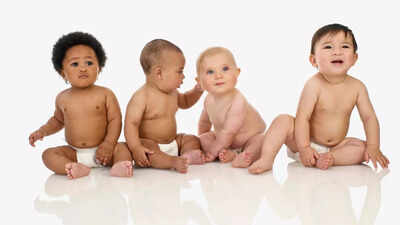
What if we stopped having babies? Humanity could vanish within 100 years, new study warns
In a scenario that reads more like science fiction than science, researchers have modelled what would happen if humans around the world simply stopped having children. The results are chilling. According to a new study highlighted by Human Nature News Weekly, the human species could be nearly wiped out within a century, not by war, climate change, or disease, but by biological stagnation.The premise is straightforward: imagine a world where, suddenly and globally, no new babies are born. It begins with silence in maternity wards and ends with a complete collapse of society as we know it. While the world’s population might coast on inertia for a few decades, the absence of younger generations would eventually pull the plug on everything from food systems and medicine to governance and infrastructure.
What happens to the world when everyone stops having kids
The researchers behind the study modelled the societal breakdown that would follow a complete halt in reproduction. At first, things might seem manageable. Older adults would still be in the workforce. Supermarkets would stay stocked. Hospitals would run. But as time goes on and workers begin to retire or die, critical systems would lose their backbone.
“There would not be enough young people coming of age to do essential work, causing societies throughout the world to quickly fall apart,” the researchers explained. “Food would become scarce even though there would be fewer people to feed.”By the year 70 or 80, the effects would become catastrophic. Food production would stall without farmers.
Healthcare
would collapse without nurses and doctors. Power grids and public transport would shut down without technicians and engineers. In the absence of a new generation, the gears of civilisation would grind to a halt.
Could a pandemic that halts births destroy humanity?
While the idea sounds far-fetched, the researchers acknowledge that a global birth halt could theoretically result from an extreme biological event, such as a novel virus that renders the human population infertile. In this hypothetical, even a short period of widespread infertility could shift the world into demographic freefall.
A global shift toward fewer births
The United States, as per a Live Science report, for example, has already seen birth rates fall in recent years. In 2024, around 3.6 million babies were born, down from 4.1 million in 2004, according to the
Centers for Disease Control and Prevention
(CDC). Meanwhile, the number of deaths in the US has climbed from 2.4 million in 2002 to over 3.3 million in 2022.Globally, nations like South Korea, Japan, and India have also recorded sharp declines in fertility. South Korea’s birth rate has hit historic lows, with fewer than 0.8 births per woman in some years, far below the replacement rate of 2.1. India, which recently overtook China as the most populous country, is seeing a steady decline in fertility as more women delay or forgo childbirth due to education, employment, and economic pressures.
Lessons from the past: What Neanderthals can teach us
To give historical context, researchers looked at another branch of the human family tree: the Neanderthals. According to a Live Science report, this close relative of modern humans emerged about 400,000 years ago and coexisted with Homo sapiens for tens of thousands of years before disappearing around 40,000 years ago.Archaeological evidence suggests that modern humans were more successful at reproduction and resource distribution. Those differences helped Homo sapiens outlast their cousins. The study draws a stark warning from this: reproduction and adaptability are closely linked to survival, not just for individuals, but for entire species.
Is male fertility a hidden risk?
Another concern raised by the researchers is the global decline in male fertility, particularly sperm count. A 2022 meta-analysis published in Human Reproduction Update found that sperm counts globally have dropped by more than 50% since the 1970s. Environmental toxins, lifestyle factors, and rising obesity rates have all been cited as possible causes.If male fertility continues to decline, paired with social trends toward delaying childbirth, the world could see sharper population decreases than expected. Though not as abrupt as the “no babies at all” scenario, the long-term effect could lead to similar consequences over multiple generations.
Can migration save us?
Some demographers point to immigration as a partial solution for declining national populations. Countries with low fertility could balance their labour force with younger migrants from nations with higher birth rates. But as the study notes, this approach is often complicated by political tensions, xenophobia, and cultural resistance, particularly in high-income countries.Without social and political support for immigration, population imbalances may still cause large-scale labour shortages and service disruptions.
What would a babyless future mean for Earth?
Interestingly, the study also touches on what might happen if humans were no longer the dominant force on the planet. While climate change and environmental destruction have been driven largely by human activity, our absence might give Earth and other species a chance to recover.But the researchers caution against romanticising such a scenario. A world without humans also means a world without human achievements: no medicine, no literature, no space exploration, no shared memory of art, science, or culture.
What can we do to avoid this future
While the complete halt of human reproduction is unlikely, the long-term decline of global fertility is already underway. The researchers call for urgent steps to strengthen humanity’s future:
- Support families: Offering economic, parental, and childcare support could make it easier for people to choose to have children.
- Tackle climate change: Securing the planet’s future directly impacts human survival and fertility health.
- Invest in reproductive health and education: Informed choices and access to healthcare are essential to sustainable population growth.
- Encourage immigration policies that adapt to demographic shifts while respecting cultural identities.

 7 hours ago
44
7 hours ago
44




























 English (US)
English (US)